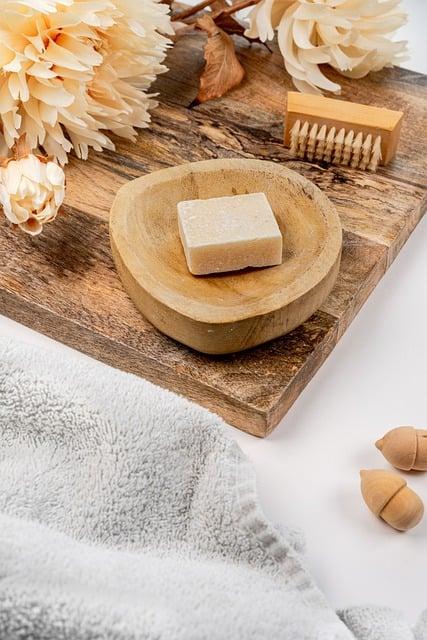In a world where wellness has become a billion-dollar industry, the allure of trendy health practices is undeniable. From jade rollers to juice cleanses, and from sound baths to salt caves, the modern pursuit of well-being is awash with innovative, and often exotic, rituals promising transformative results. Yet, as these practices captivate our imagination and wallets, a crucial question arises: are they grounded in scientific evidence, or are they simply captivating illusions? This article embarks on a journey through the kaleidoscope of contemporary wellness trends, seeking to unravel the truth behind their claims. By examining the intersection of tradition, innovation, and empirical research, we aim to discern whether these practices are the panacea they purport to be, or merely the latest chapter in the timeless story of human hope and aspiration. Join us as we delve into the vibrant world of wellness, balancing curiosity with critical inquiry, to discover where science meets the soul.
Exploring the Science Behind Popular Wellness Trends
In today’s fast-paced world, wellness practices often emerge and captivate our attention with promises of improved health and vitality. But how many of these practices are grounded in scientific evidence? Here, we delve into some popular trends and assess their credibility. Intermittent fasting, for instance, has garnered a substantial following for its potential weight loss and metabolic benefits. Recent studies suggest that this eating pattern can indeed promote weight loss and improve metabolic health, but the long-term effects are still under investigation. Another trend, mindfulness meditation, has been lauded for reducing stress and enhancing mental clarity. Scientific research supports these claims, highlighting its impact on lowering cortisol levels and enhancing cognitive function.
On the other hand, some trends may not be as robustly backed by science. Consider the surge in detox diets, which claim to cleanse the body of toxins. Despite their popularity, there is little scientific evidence to support the need for such diets, as the body already has efficient detoxification systems in place. Similarly, crystal healing is embraced by many for its purported energy-balancing properties, yet scientific support for these claims remains scarce. As consumers, it is crucial to critically evaluate wellness trends and prioritize practices with proven benefits. By doing so, we can make informed decisions that truly enhance our well-being.

Evaluating the Efficacy of Modern Health Practices
In today’s fast-paced world, the pursuit of health and well-being often leads us to explore a plethora of modern wellness practices. From the ancient art of mindfulness to the cutting-edge techniques of biohacking, the wellness landscape is vast and varied. But how do we discern which practices are truly beneficial? Here are some key considerations when evaluating their efficacy:
- Scientific Backing: Look for peer-reviewed studies that support the claims made by a wellness practice. Evidence-based research provides a solid foundation for determining its potential benefits.
- Expert Endorsements: Consider the opinions of healthcare professionals and experts in the field. Their insights can offer valuable perspectives on the safety and effectiveness of a practice.
- Personal Experience: While empirical evidence is crucial, personal experiences can also play a role. Individual responses to wellness practices can vary, making it important to consider anecdotal evidence alongside scientific data.
By critically assessing these aspects, we can make informed decisions about which trendy wellness practices might be worth integrating into our lives. Balancing scientific evidence with personal insights ensures a comprehensive approach to health and well-being.
The Role of Research in Shaping Wellness Fads
In the ever-evolving world of wellness, research plays a crucial role in distinguishing between fleeting fads and practices grounded in science. While the allure of trendy wellness practices often lies in their novelty and promises of quick results, it’s essential to scrutinize their efficacy through the lens of scientific research. Evidence-based research serves as a guiding light, helping consumers make informed decisions about which practices to embrace and which to approach with caution.
Several factors contribute to the shaping of wellness trends through research:
- Peer-reviewed studies: Rigorous studies provide credibility, assessing the benefits and risks associated with new wellness practices.
- Long-term data: Trends backed by long-term data offer insights into sustained benefits and potential drawbacks.
- Expert opinions: Input from health professionals and scientists ensures that practices are safe and beneficial.
- Publications and media: Research findings disseminated through reputable sources help shape public perception and acceptance of wellness trends.
By prioritizing research, the wellness industry can navigate the fine line between innovation and misinformation, ensuring that new practices enhance well-being without compromising health.

Guidelines for Navigating the World of Wellness
In a world where wellness trends seem to change as quickly as fashion seasons, it’s crucial to tread carefully and make informed decisions. While exploring new health practices, consider these guidelines to ensure you’re not swept away by mere hype:
- Research Thoroughly: Investigate the origins and claims of any wellness practice. Reliable sources, such as peer-reviewed journals and expert opinions, can offer insight into the efficacy and safety of a trend.
- Consult Professionals: Before adopting a new practice, consult healthcare professionals who can provide personalized advice based on your health history and current needs.
- Listen to Your Body: Everyone’s body reacts differently. Pay attention to how you feel and don’t hesitate to discontinue a practice if it causes discomfort or adverse effects.
Remember, while the allure of the latest wellness trend can be tempting, a balanced approach grounded in evidence is key to cultivating true well-being.
Closing Remarks
In the ever-evolving landscape of wellness, where ancient wisdom meets modern innovation, the quest for health and balance continues to captivate our collective consciousness. As we navigate this terrain, it’s essential to carry both curiosity and discernment in our wellness toolkit. Trendy practices may shimmer with the allure of the novel, yet it is the solid ground of evidence that ensures our steps are sure and safe.
the journey to wellness is as personal as it is universal, a tapestry woven from diverse threads of tradition, science, and personal experience. As we explore these paths, let us remain open to the possibilities while anchoring our choices in informed understanding. For in the balance between trend and truth lies the true essence of well-being—a harmony of mind, body, and spirit that resonates with authenticity and wisdom.


































